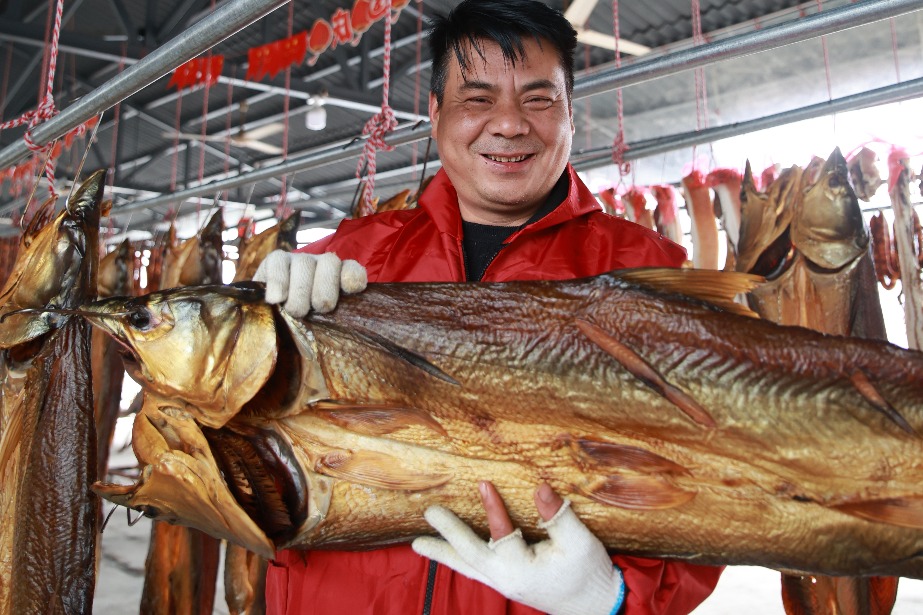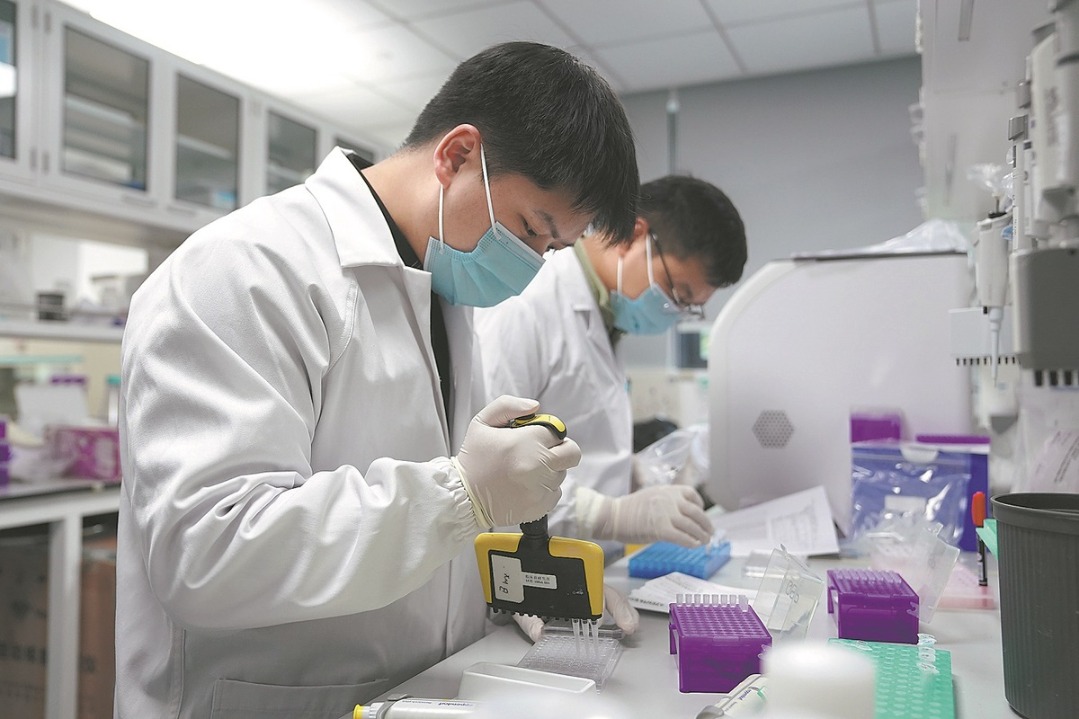Expanding common ground with the EU


China and the EU are both builders of world peace, contributors to global development and defenders of the international order
This year, the world is undergoing changes unseen in a century, the most prominent being the United States pulling back from the global political and economic order formulated at the cost of the two world wars. Leveraging its hegemony, the US is imposing higher trade tariffs on its trade partners. As a result, unilateralism is increasing.
Apart from the trade attack it launched against China, the US has also launched a tariff war against the European Union. Although the European Commission, on behalf of the EU, arrived at a temporary truce with the US in 2018, deep contradictions still remain, along with frequent frictions. However, the EU's dependence on the US for its security means it is difficult for it to fight back.
The US and the EU have common aspirations, though, as they both want to revise the trade rules so they are unfavorable to emerging industrialized countries and establish a united front of developed countries. The EU, though, still opposes unilateralism. Like China, it is a supporter of the multilateral international order. This can serve as a new cornerstone for future cooperation between the EU and China.
As important international actors, the European countries resolutely advocate multilateralism. They know that only unity can maintain peace, a painful lesson learnt after two world wars. So the integration is crucial for peace and prosperity in postwar Europe.
International politics is a lot about guarding self-benefits. However, global peace and mutual prosperity cannot be achieved under de facto anarchic international circumstances.
The cradle of modernization and globalization, postwar Europe took the lead in building a community with common interest between nations, which also inspired China's proposal to build a community with a shared future for humanity.
China, a developing country with rapid economic growth, seeks multilateral solutions to international issues.
Given these common goals, China and the EU can develop a partnership to safeguard and reform the international political and economic order. Sino-EU relations are of great significance not only to both sides, but also to global development in the context of the uncertainties triggered by the US.
In March 2019, President Xi Jinping visited Italy, Luxembourg and France and met with the leaders of France, Germany and the EU to discuss global governance. His tip reaffirmed the importance of multilateralism.
On Sept 19, the European Commission issued a policy document titled the EU Strategy on Connecting Europe and Asia which listed China as its primary partner. China, too, supports a partnership with the EU and advocates the EU strategy be lined with the Belt and Road Initiative.
The consensus on multilateralism between China and the EU can help overcome various differences and challenges and deepen the partnership.
But the EU is an important force supporting a multilateral world, only if it can keep its leading position. In this regard, the EU needs to be more responsive to ever changing world patterns in order to continue to play a constructive rather than destructive role in maintaining the hard-won world order at the expense of two world wars.
In the long run, the coexistence of cooperation and competition will be a new normal for China-EU relations. But their competition, and the EU's security dependency on the US, should not impede the cooperation between China and the EU, which are actively undertaking a constructive role in reform of the international governance system.
President Xi told leaders of the EU attending the 20th China-EU Summit in Beijing in July 2018 that China and the EU are both builders of world peace, contributors to global development and defenders of the international order.
"The two sides are strongly committed to fostering an open world economy, improving trade and investment liberalization and facilitation, resisting protectionism and unilateralism," said the Joint statement of the 20th China-EU Summit. The increasing consensus will help promote healthy development of Sino-EU ties.
Although both China and the EU have shown strong determination to strengthen their partnership, differences do exist. But the essence of multilateralism is to bridge differences, manage conflicts and promote cooperation through dialogue and consultation.
The author is the deputy director of Institute of European Studies, Chinese Academy of Social Sciences. The author contributed this article to China Watch, a think tank powered by China Daily. The views do not necessarily reflect those of China Daily.
- China's 2026 Spring Festival travel rush to begin
- Knocking on the stone-framed door
- Shanghai Science and Technology Museum to reopen soon
- Shanghai celebrates Spring Festival with intl students
- Pegasus fondant artwork ushers in Year of the Horse in Shanghai
- China, Algeria expand space cooperation with new satellite launch




































